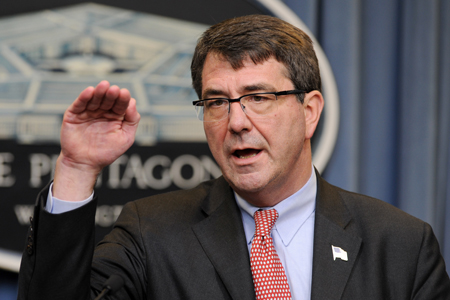LightSquared’s  proposals for a wireless broadband network “would cause harmful interference to many [Global Positioning System] receivers,” and “there appear to be no practical solutions or mitigations” to allow the company’s network to operate without that significant disruption, according to the National Space-based Positioning, Navigation, and Timing Executive Committee co-chairs. This was “the unanimous conclusion” of the Excom’s agencies after “substantial federal resources” were expended to analyze the company’s original plan and subsequent modifications, wrote Deputy Defense Secretary Ash Carter and Deputy Transportation Secretary John Porcari in their Jan. 13 letter to Lawrence Strickling, assistant commerce secretary for communications and information. Further, Federal Aviation Administration analysis concluded that LightSquared’s proposals “are not compatible with several GPS-dependent aircraft safety-of-flight systems,” wrote the co-chairs. These findings build upon the warnings of senior Air Force space officials about the LightSquared network’s projected interference. Despite this specific case, Carter and Porcari said “the Excom agencies continue to strongly support” the President’s desire to make spectrum available for broadband use. They said they propose “to draft new GPS spectrum-interference standards that will help inform future proposals for non-space, commercial uses in the bands adjacent to the GPS signals.” (Committee website)
proposals for a wireless broadband network “would cause harmful interference to many [Global Positioning System] receivers,” and “there appear to be no practical solutions or mitigations” to allow the company’s network to operate without that significant disruption, according to the National Space-based Positioning, Navigation, and Timing Executive Committee co-chairs. This was “the unanimous conclusion” of the Excom’s agencies after “substantial federal resources” were expended to analyze the company’s original plan and subsequent modifications, wrote Deputy Defense Secretary Ash Carter and Deputy Transportation Secretary John Porcari in their Jan. 13 letter to Lawrence Strickling, assistant commerce secretary for communications and information. Further, Federal Aviation Administration analysis concluded that LightSquared’s proposals “are not compatible with several GPS-dependent aircraft safety-of-flight systems,” wrote the co-chairs. These findings build upon the warnings of senior Air Force space officials about the LightSquared network’s projected interference. Despite this specific case, Carter and Porcari said “the Excom agencies continue to strongly support” the President’s desire to make spectrum available for broadband use. They said they propose “to draft new GPS spectrum-interference standards that will help inform future proposals for non-space, commercial uses in the bands adjacent to the GPS signals.” (Committee website)
When acting Air Force Secretary Gary A. Ashworth rescinded service-wide “Family Days” last week citing the need to build readiness, he left it up to commanders, directors, and supervisors to decide if they would still permit extra days off. Here’s how Air Force major commands are taking that guidance.